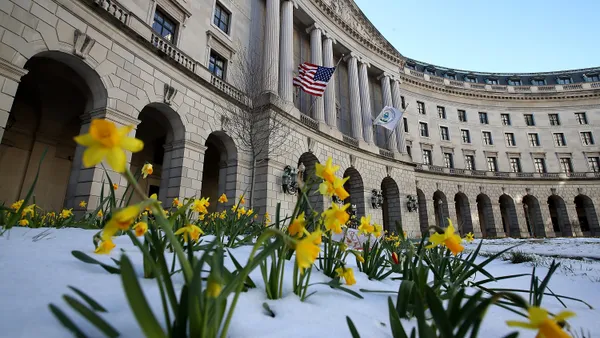Dive Brief:
- Utilities in Michigan have spent some $1.6 million in the last year aimed at influencing the broad energy policy debate that's going on now, according to a detailed analysis of lobbying efforts by Michigan news outlet MLive.com.
- That total includes a half million in political donations and $800,000 on television ads bought by a utility-backed non-profit.
- The state has been struggling with a number of utility issues, most notably a partial deregulation market design that has split legislators and led to energy shortfalls in some parts of Michigan.
Dive Insight:
As Michigan legislators mull the state's energy future, utilities are funneling cash into the debate through a variety of methods, according to MLive.com.
Overall, the $1.6 million spent on lobbying this year includes more than $500,000 in donations, $300,000 in lobbying and $800,000 spent by a utility-backed non-profit. The group, Citizens for Michigan's Energy Future, has purchased ads warning against deregulation and possible energy shortfalls.
While the group doesn't disclose donors, MLive reports the Sunlight Foundation unearthed links to utilities. Consumers Energy subsequently confirmed its support for the group in a statement.
The Michigan Campaign Finance Network (CFN) did the heavy lifting on the campaign contribution figures, and went a little deeper to examine individual utility donations, the bulk of which came from two providers. From Nov. 24, 2014, through Oct. 20, 2015, DTE Energy donated almost $270,000, while Consumers Energy gave $144,000.
CFN said the political contributions went to officeholders' candidate campaign committees, their leadership's political action committees (PAC), and the legislatives caucuses' PACs.
Last week, the Michigan House Energy Policy Committee passed two amendments to energy legislation, including a 30% renewables goal by 2025 and a compromise which would keep the state's energy choice law at 10%. The renewables goal is voluntary; the energy choice decision takes a softer stance on retail providers' gaurantees they can serve customers, and marked a significant compromise.
House Rep. Aric Nesbitt (R), who chairs the energy policy committee, put forth the latest compromise. The amendment would maintain the 10% choice limit, and put in a three-year review and an annual assessment for third party suppliers.
"I feel I've provided a good compromise between those that want to further go to retail open access and those that want it eliminated," Nesbitt said.
Earlier this year, the Midwest ISO reported Michigan's lower peninsula faced an energy shortfall and would dip below reserve margins by about 3,000 MW in 2016. While the shortfall isn't expected to lead to outages, many tied it back to the state's choice program, which utilities say makes planning difficult.














